In 2017, Jescah Ochieng came face to face with impacts of political violence.
Kisumu had erupted following the disputed presidential election results, and police came in large numbers to restore calm.
Ms Ochieng, a resident of Nyalenda Estate happened to have been among the women who faced rights violations.
“I was violated. The beatings, the harassment, the teargas, and the constant threats instilled so much fear in us,” she said.
With the violence crippling the economy, Ms Ochieng who used to engage in small scale businesses could not easily feed her children.
I was violated. The beatings, the harassment, the teargas, and the constant threats instilled so much fear in us
Jescah Ochieng
And weeks later, when calm was restored, the images of the violations remained printed in her heart.
“Our lives changed. Women remained scared, and introverted,” she said.
But interventions by various non-governmental entities to initiate healing processes soon got Ms Ochieng out of her shell.
Today, Ms Ochieng is the Deputy Chair of Nyalenda Mama Safi Bunge. The Bunge champions dialogue on matters facing the community.
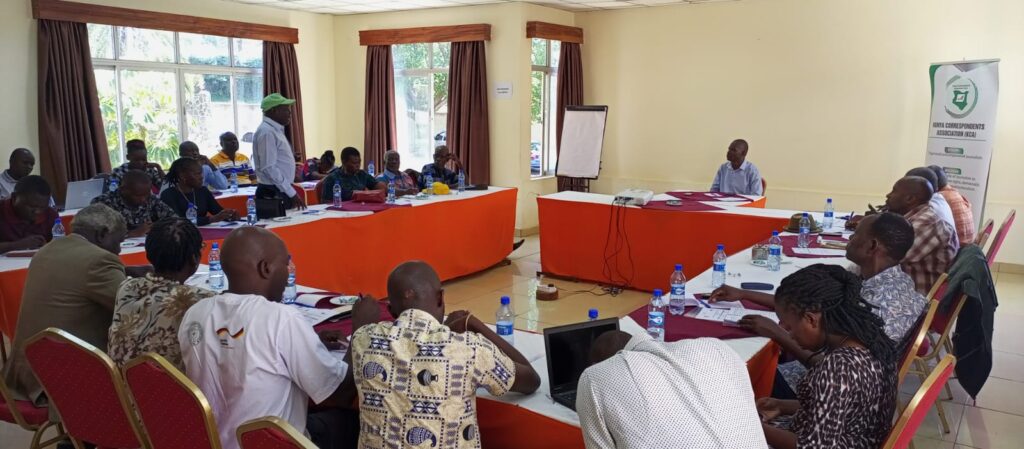
Using Bunges for dialogue
Bunges are informal forums where community members converge to discuss issues facing them. Kisumu County has 27 of such forums, distributed within the seven sub counties.
Ms Ochieng attributes this stride to continuous dialogue through various forums, which has since rebuilt her confidence.
But she is not alone. A number of women have since become active in the various Bunges, and are shaping the discussions in the forums.
Jane Abuto is the organizer of the neighbouring Nyalenda Main Bunge, and also chairs a subsidiary of the forum, named Nyalenda Women Bunge.
She says through the forums, various issues facing women have been featured, and continue to gain traction.
Her sentiments are not different from those of Roselyda Juma, the Secretary of Mama Safi Bunge.
Ms Juma was also a victim of the 2017 election violence, but says she is healing through the dialogue.
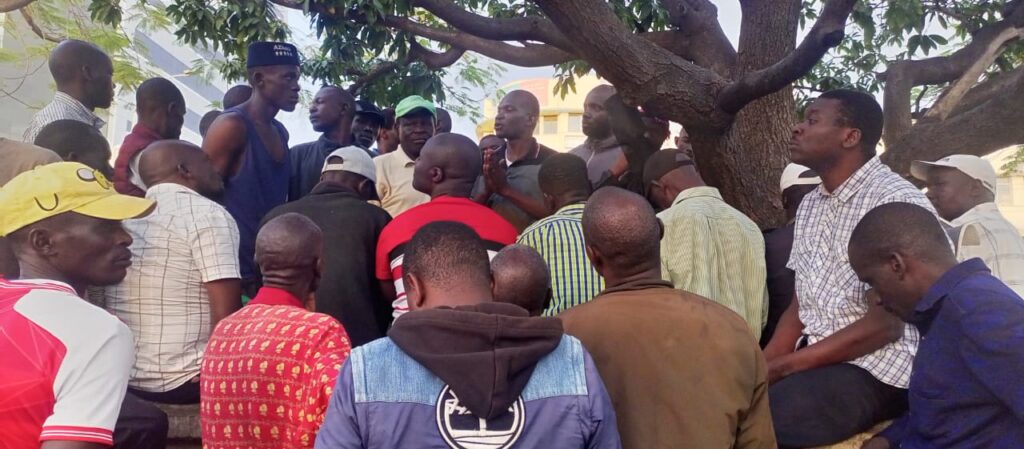
How the Bunges work
According to Ms Abuto, the Bunges have structures which comprise of the Chairmen, their deputies, Secretaries, Treausers, and Organizers.
Some also have speakers who steer the discussions.
During their sittings, which mostly take place every evening, members register topical issues with the leadership.
The leadership then vets and approves the issues to be discussed during the sessions.
Members are given time to debate, with the leadership giving direction on the matter before they introduce another topic.
On issues which require intervention of various government agencies, the Bunge leadership take up such issues, and follow up with the relevant offices through letters, petitions or physical appointments.
We discovered that through the Bunges, we had the support of men, and the ears of the authority
Jescah Ochieng
“Sometimes there are issues which require just capacity building of the members. Here we invite experts who give probono talks,” says Ms Abuto.
She says through the Bunges, they have been able to solve issues of Gender Based Violence, insecurity, civic education, public participation, land rights, peace and coesion, as well as the role of women in leadership.
“It is through the Bunges that we have been able to vouch for election of women,” she says.
Ms Ochieng notes that even though women have various forums where they discuss their issues, Bunges remain powerful as they have become authority in community matters.
“We discovered that through the Bunges, we had the support of men, and the ears of the authority,” she says.
Ms Juma is a trained and practicing nurse.
Despite work engagements, she finds time to attend the Bunge sessions, and has had several opportunities to share knowledge on health related matters.
“I may not be able to attend all the Bunge sessions, but I ensure my voice is heard when I get the opportunity to attend,” she says.
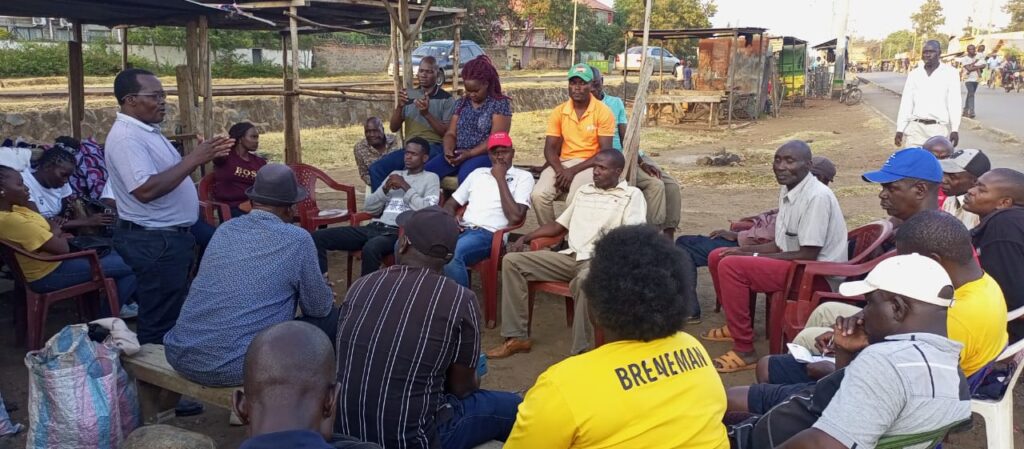
With most Bunges sitting between 5pm and 8pm, Juma notes that it has been a challenge for women, as this is the time most of them are engaged in domestic chores.
“We have children to attend to, and families to feed during this time. So not many women would dedicate so much time to the Bunges,” she says.
Ali Simira who chairs Kisumu County Bunge Caucus says women involvement in Bunge dialogue has been growing.
Simira who also chairs Central Square Bunge says they have introduced Women Representative positions in the Bunge leadership, so as to increase women participation in the dialogue.
“At Central Square, we have three women representing the interests of women, and we are keen to make sure more women get leadership positions,” he said.
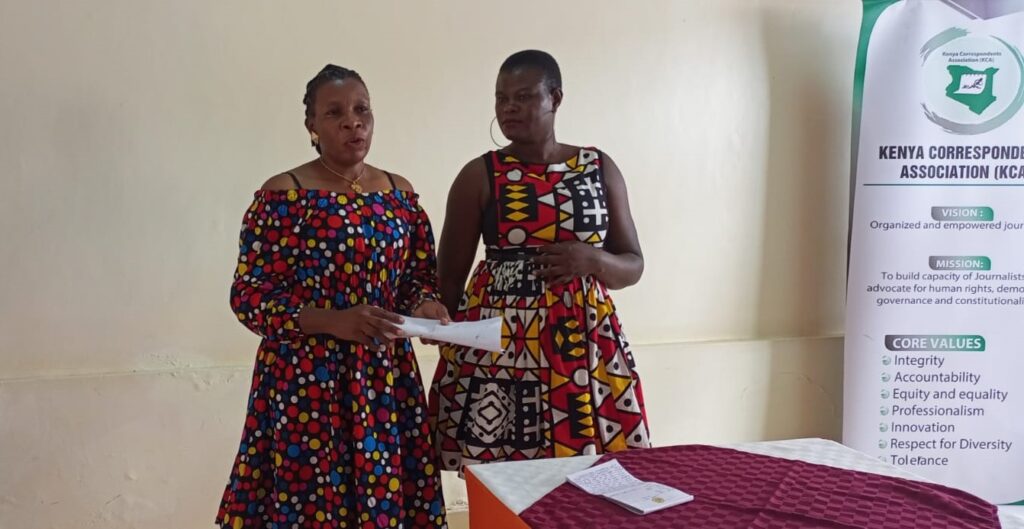
The women agenda in Bunges
Robert Kiberenge, the Deputy President of the National Bunge admits that women participation in the forums have been low, but there is an upward trajectory.
“We understand that women have so many responsibilities, especially in the evening, hence little time to attend the sessions,” he said.
He adds: “But we ensure that the issues discussed are issues facing the community at large.”
“When we discuss the cost of living, the poor status of health, or gender representation in government, these are issues which are key to women,” he adds.
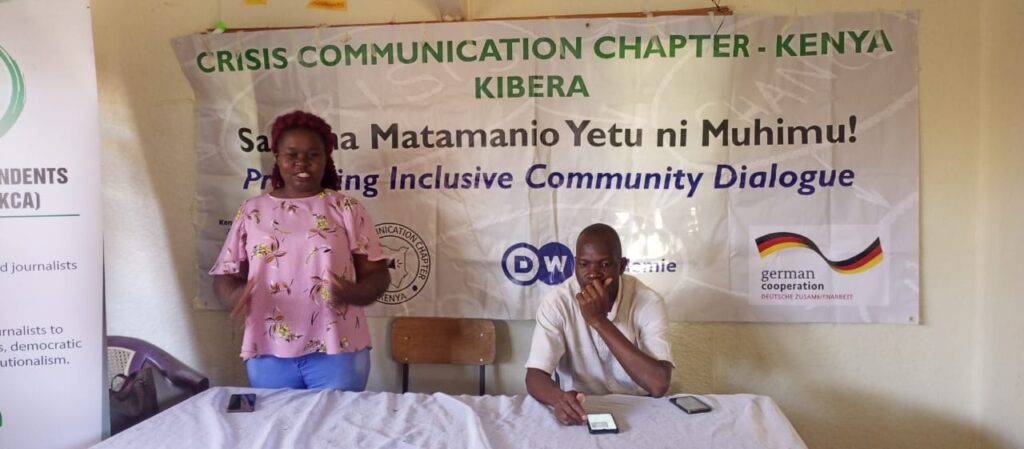
Kenya Correspondents Association (KCA) has been implementing a program promoting dialogue in the communities, dubbed Crisis Communication Chapter (CCC).
The program funded by DW Akademie provides a platform for the communities to dialogue on issues facing them.
In a small way through the various forums such as women and youth groups, a lot can be achieved through dialogue
Oloo Janak
Bunge leadership in Kisumu have been beneficiaries, where they have physical meetings, or radio programs to discuss the various issues they face.
According to KCA Chairman Oloo Janak, dialogue provides the best avenue for non-violent avenues of solving problems facing communities.
“When people come together to talk, they find solutions to various problems,” said Janak.
He noted that lack of dialogue forums give room to disinformation, which eventually disrupts peace in the communities.
“In a small way through the various forums such as women and youth groups, a lot can be achieved through dialogue,” he noted.
